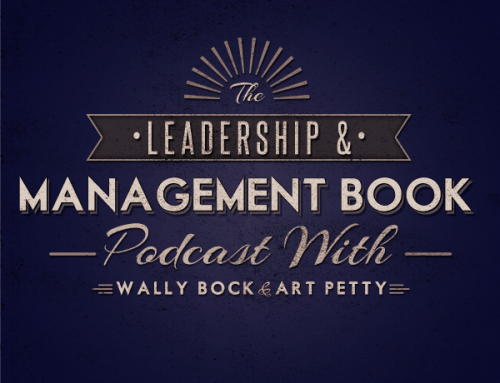We delivered our oldest son to college on Friday and our high school senior survived (barely) the annual “first day of school picture” in our backyard this morning. I am busy preparing class materials for my Fall MBA courses and it feels like summer is officially over regardless of what the meteorological calendar says.
I love “Back to School” time every year. There’s a palpable level of excitement in the air tinged with just a bit of sadness about the end of vacations, beach reading and weekend barbecues. It’s also a time where education is (or should be) the focal point in many households as students and parents get ready for homework, tests and projects. And while we all know that education and learning have no season, our reliance in the U.S. Midwest on an arcane but not unpleasant long summer break (versus year-around school interspersed with shorter breaks in many other regions), makes the return to school all the more dramatic.
One of the things we often lose as busy working adults is that sense of excitement about learning. It’s easy to let years and even decades slip by and focus on everything but our own self-development. Sure, we attend mandated training in our company and possibly even the periodic seminar to earn the Continuing Education Units (CEUs) mandated by our professional certifying organizations. Unfortunately, neither of those formats creates the exhilarating sense of learning and discovery that we may have had at some time earlier in our lives, but lost along the way to becoming responsible adults.
As a hiring manager for many years and now as a leadership development trainer and consultant, I’ve talked with hundreds of people about their continuing education, and I am always surprised when people struggle to describe anything substantive in this area. Somewhere earlier in my school career, I remember an educator banging the drum repeatedly that “learning is a life-long process,” and I believed him.
It’s my observation that the most capable and most successful individuals are constantly seeking knowledge, relentlessly working to expand their skills and often driven by some inner-sense of the need to learn through exposure to new ideas. If you fit this description, quit reading and get back to what you were doing. If you have to go back decades to recall the last course you took or the last time you read a book that wasn’t on the fiction best-seller list (nothing wrong with fiction best sellers, but diversity is good), here’s a list of activities to help you rekindle your love of learning and your pursuit of knowledge:
- Join a local book club (contact your library for ideas) and gain from the perspectives of others and the rigor of having to stay on task with your reading assignments.
- Start and lead a book club at your place of work—you might even get the company to pay for the books!
- Spend some time researching the state of the art in education and certifications for your profession. If you end up feeling hopelessly outdated, it’s time to take the next step and choose a workshop, a certification program or even another degree program.
- If you hate the idea of physically attending class, investigate on-line opportunities. The number of programs delivered on-line is growing daily and the flexibility is great for busy people.
- Consider a program outside your core field of expertise. In the Chicago-area, Northwestern, University of Chicago and DePaul all have some remarkable humanities and literature programs that are designed for and filled with doctors, lawyers, teachers and professionals from every other possible vocation. If you don’t want the rigor of a degree investigate certificate options or possibly even just auditing a course. Individuals that I know that have gone through these courses credit them for helping open their eyes to a whole world of ideas that they didn’t know existed.
- More reading. Put down the trade journals for a while and pursue something in the history or biography sections. It’s remarkable what we learn from studying what others have already gone through.
- Executive Education can be exhilarating. I go to Kellogg to recharge and I always leave a program with ideas to help improve my performance and my business. Exec Ed is big business and big $, but many companies support the initiative.
- Take advantage of tuition reimbursement dollars from your company. Most organizations never spend what they’ve budgeted in this area. You can help solve this problem.
- Seek out a mentor. Depending upon where you are at in your career, this can be an enlightening experience. If you are beyond the “seeking” phase, consider becoming a mentor.
- Teach a class. A wise person indicated that if you want to learn about something, sign up to teach a class about it.
- Volunteer to lead an initiative in the community. Some of the best leaders and project managers that I know are found on the teams and programs in schools and churches.
The Bottom-Line for Now:
The brain is a lot like the body…use it and it stays fit and ready for action. Allow it to atrophy and everything becomes a struggle. You have a remarkable capacity to learn. Whether you use it or not is up to you.
The concept of the Learning Organization is well established and widely acknowledged as a requirement for realizing and sustaining success. Senge described the need to not only create organizations that learn and adapt, but to realize those that become generative and to create their own futures. Your ability to consistently add value to your organization is in large part related to your active pursuit of new ideas and new ways of looking at the world.
What’s on your mind today?






Art,
Having just dropped off my “little boy” at college this week your post resonated with me.
I enjoyed the learning experience and I am very excited for my son.
My challenge is how do we as leaders create and sustain that excitement within our organizations? On the seemingly long drive home after moving him into his dorm room I wondered how we could create teams of hungry sponges desiring to soak up as much knowledge as possible.
I have always lived by the motto “if you rest you rust.” Far too many of us launch careers and fail to sharpen the saw as Steven Covey puts it.
When I was challenged by a friend to write my book, I did a little research. The average US adult will only read one book per year to learn something new. I asked my network if they read, how often and they confirmed that they too are “too busy” to read. They felt a book was another commitment, another to-do on their already list with too many action items for an 18 hour work day.
Luckily for the busy executive, small business owner, whomever there are a number of great seminars, e learning’s, podcasts, and internet content for practically every subject you may have the desire to learn more about. Based on consumer demand our new book Tuned in is now offered in audio downloads for the busy executive to listen to while working out, or on a long commute.
Continuous learning is the same as continuous product improvement. We all must invest in ourselves as if we were products. We must make sure we, as products, stay competitive in the fast paced market we find ourselves in today.
If a book feels like a commitment take a seminar. If you can’t attend a three day seminar take a one day seminar. Participate in on line communities in your space, and turn that time working out and or commuting into time to improve you as a product to add value to your current and possibly future employers.
Mark Allen Roberts
http://www.tunedinblog.com/
Art, I completely agree with your premise that successful individuals are constantly seeking knowledge. They realize that learning is the key to progression and the more they focus on one the more they reap the other. One of my favorite quotes is the following by Eric Hoffer:
“In a time of drastic change it is the learners who inherit the future. The learned usually find themselves equipped to live in a world that no longer exists.”
Thanks for the reminder that we should all be in “back to school” mode. -Michael
Mark and Michael, thanks much for your thoughtful comments and for some great quotes for future posts! -Art
Art –
Great list! The opportunities to continuously learn and grow are all around us, every day.
If I may, I’d like to add two more:
1.New experiences. There’s no better way to learn. Raise your hand, volunteer, come up with new ideas, try something new. Be curious. Heck, take a new way to work tomorrow.
2.Read Art Petty on Management. Every day.
Art, as noted above – good post and good thoughts. Since there is no disagreement with your point, the key is to move on to better understand how to gain access to the new thoughts and ideas that we all need in order to stay “fresh”. In the field of technology in which I work, this can be particularly difficult not only because things change so quickly, but also because new avenues of thought and products seem to show up weekly. Portable music? Self published videos? Social Networking? Where is all of this new thinking coming from and how to stay on top of it?
I have no magic answers; however, in my case both joining and then participating in the IEEE (http://www.ieee.org) has been a godsend. Having a professional society sift through all of the available information and then present it to me in a condensed fashion with comments has helped me to stay on top of changes. This has, of course, allowed me to free up more personal time so that I can now listen to “books-on-tape” and make it though a mind-numbing 5 books a year!
– Dr. Jim Anderson
Blue Elephant Consulting
http://itproductmanagement.blogspot.com/
Dan and Dr. Jim, thanks for your kind words. Dan, your additions to the list are great!
Dr. Jim, the IEEE is a great organization…thanks for the reminder. The issue you raise is one of the challenging issues of our time. I’ve found that immersing myself in as much new technology and as many new ideas helps tremendously. Of course, the dirty little secret is that so many of the noise-making advancements are simply new twists on long-standing human issues. The notion that something big is perpetually around the corner does make it an exciting time to be alive.
-Art